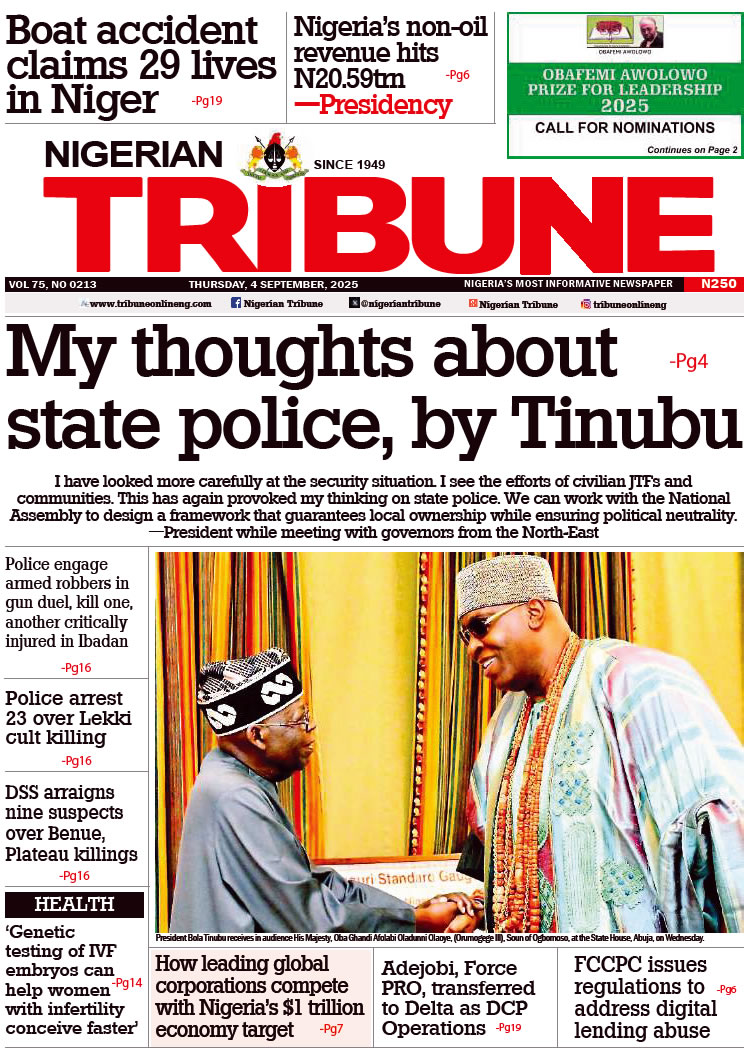It could be argued that one of the numerous reasons why female musicians are less popular and successful is the uneven gender distribution of their audience. According to statistics, it is believed that there are more females than males in the country, thus affecting the fan base of female artistes. Naturally, people are attracted to the opposite gender. Due to the imbalance between male and female fans, male music artistes are more likely to have a much larger fan base, which is a combination of both genders, than female artistes. The average Nigerian male is more prone to identify with the music of a male artiste because of the lyrics, flow, beats of the track and most importantly, the swagger of the artiste, rather than tune in to the emotional, heartfelt lyrics of a female artiste. Male artistes get larger crowds at their concerts and other events they participate in because of this factor.
Again, according to findings, the Nigerian music industry is mainly run by men. From top to bottom, every facet of the industry has men at the helm, holding in it a crippling choke hold.
A music critic at Pulseng, Joey Akan, in a submission, wrote, “The music creators are the worst hit by this. At the top of mainstream music and pop culture, for every one successful female singer, there are 10 men. For every one hit by a female singer, there are countless by the men. In rap, this is most pronounced, with the only popularly accepted rap artistes being Eva Alordiah, Mz Kiss, Saeon and a few others at the moment.
Female artistes have it tough. First they have to deal with the restriction of a conservative society of Nigeria, which has resulted in the rife perception that women in entertainment are not exactly role models of purity. Over the years, through work by many singers, this view has been slightly made obsolete with advancement in education and ideals, but a sizable percentage of people still hold this view. Then they also have to deal with the sexism that is prevalent in the Nigerian music industry. No sane person with a career would admit to sexism, but the women are groaning under the weight of it”. A fraction of female artistes even go as far as sexualising their image in order to get more fans and support but that may not always be the answer when it comes to the question of who has got more talent to offer.
Simply put, being a women is a hard job in Nigerian music. While the male artistes are judged on their material and its quality alone, the females are judged on more criteria. Music has no gender, yet in the media, it’s obvious that gender usually precedes the talent. It’s common to see women described as ‘female rapper’, ‘female DJ’ or ‘female singer’. This gender description is hardly ever used in the case of men. Women also have to work harder with promoting their music. “Everything that a guy says once, you have to say five times”, Icelandic singer Björk told Pitchfork in an interview last year.
According to Seyi Akindele, an undergraduate, “Nigerian female artistes are also arguably less visible than male artistes. Majority of female artistes in Nigeria are easily forgotten until the next time that they release an album or promote a single. They tend to be docile and inactive, except on social media. Not many radio tours or shows too”. Like the old saying states, out of sight is out of mind. Contrarily, male artistes always to strive to regularly interact with their prospects by organising mini giveaways etc, all to connect better with their fans who contribute massively to their success.
All these efforts make them more prominent in the media and unconcealed to their stakeholders.
There is also the question of commitment. Male artistes are arguably more committed to their careers than female thespians. External factors such as relationships and travel hardly get in the way of male artistes living in their truth as artistes. Some of these artistes go as far as ‘avoiding’ marital commitment, as they view it as a distraction from their main focus.
On the other hand, when a number of these female artistes get into serious relationships, which may eventually end up in marriage, they disappear from the radar and begin to relent in producing new content to sustain the interest of their audience. Especially because a lot of Africans are of the opinion that a woman is supposed to get married in her prime, some female artistes are not ready to miss out on what seems to be a cultural rite of passage. They become more focused on building relationships, starting a family and raising offspring. Women also have their careers affected by childbirth, the gestational period and motherhood. Naturally, women are created to bear children. This function affects the career of women who decide to wear the hat of both mother and singer. There are some women who once their babies arrive their careers go silent. This is not always the case though. Tiwa Savage for example had a baby on July 22, 2015, five months later, she released a new album.
According to an entertainment critic, Tomiwa Adeola, “It even becomes worse when these relationships end in a messy way. Reputations can get ruined, thus damaging her career. Also, in the society we live in, the sins of men are easily forgiven, unlike women. A wrong move by a female artiste can cost her whole career while a male artiste may still be able to survive such mishaps”. Perhaps, this claim may be responsible to the ‘baby mama syndrome’ that most of Nigerian male artistes subscribe or engage in, in recent times.
All of these reasons mitigate to make the job of being a female singer more difficult. At the moment, only less than 10 women are at the top with Tiwa Savage, Yemi Alade, Waje, Seyi Shay, Omawumi, Asa, and few others leading the art.
Speaking with journalists, musician/sound engineer, Simi, revealed some of the challenges she has had to battle since making her entry in the entertainment circle.
‘It’s very difficult for an artiste to succeed independently before she is signed on with a label. This is because having a successful music career is capital intensive. The ability to keep my head straight at times when it seems as though I am wasting time, is no walk in the park,’ she said.
‘There are so many talented artistes competing for the top spot, so keeping faith alive is hard. Coming and breaking into mainstream music is also hard. I recently realised that I have to work harder as a woman because I can’t afford to make any excuses.’
Aramide Sarumoh, an Afro-Soul singer, says female artistes in the Nigerian music industry have to work ten times harder than their male counterparts. “Generally, in the music industry, there are more males than females; so it is a male-dominated kind of industry.
“The very few females that are there work like ten times harder just to be noticed; that’s why I say you have to always up your creativity at every point in time,” she said.
Aramide, who just released an album titled ‘Suitcase’ said irrespective of the genre musicians find themselves doing, it is always expected that they get more creative and put in their best so as to break through the challenges of the industry.
The energy of stage performances also contribute to female artistes’ inability to prosper more in the Nigerian music industry. Speaking to Friday Treat, Chukwudi Ezenwa, a choreographer said, “Quite a number of stage performances by female artistes are more work for our dancers. We have to minimise the intensity of dance routine for female artistes and take it upon ourselves to interprete such routines”.
For this reason, it may be no wonder why people may lean towards male artistes. “The male artistes do a better job when it comes to involving the audience and carry them along. They can perform for long hours while some female artistes opt for spending less time performing on stage”, Ezenwa continued.
Again, findings from respondents revealed that male artistes have more songs on the charts and win multiple awards at shows to honour them for hard work and dedication to the industry. Furthermore, major findings reveal that international music acts have collaborated more with Nigerian male artistes than female ones.
This is not to mention that there are more male producers than female ones, so the former tends to work more with male artistes, who are actually in the majority and also rake in more cash because of their massive fan base. Due to this fact, organisers and promoters of music events prefer to select male artistes as their front line artistes because of the high expectancy of favorable attendance, which translates to more ticket sales and more cash.
All in all, although music artistes of both genders try as much as possible to advocate and promote unity and support one another, the issue of not getting enough attention and recognition as they would prefer continues to be a painful thorn in the flesh of our beautiful, beloved female music artistes.
WATCH TOP VIDEOS FROM NIGERIAN TRIBUNE TV
- Let’s Talk About SELF-AWARENESS
- Is Your Confidence Mistaken for Pride? Let’s talk about it
- Is Etiquette About Perfection…Or Just Not Being Rude?
- Top Psychologist Reveal 3 Signs You’re Struggling With Imposter Syndrome
- Do You Pick Up Work-Related Calls at Midnight or Never? Let’s Talk About Boundaries








